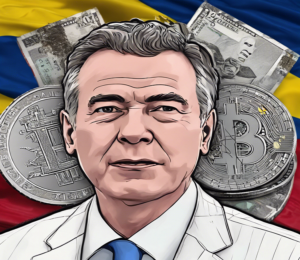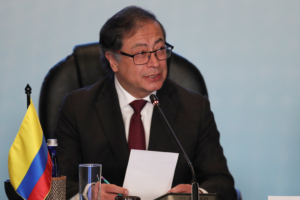Binance secures crypto licenses BSP and DASP in El Salvador
“These licenses allow Binance to expand the products and services offered including options tailored to the needs of our customers in El Salvador. It is also a great opportunity to collaborate closely with government authorities to support the adoption of crypto assets in the country, foster financial inclusion, innovation and ensure customer protection.”

Binance has become the first fully licensed crypto exchange in El Salvador after being granted both Bitcoin Services Provider license (BSP), by the Central Reserve Bank (Banco Central de Reserva), and the first non-provisional Digital Assets Services Provider license (DASP), by the National Commission of Digital Assets (Comisión Nacional de Activos Digitales).
El Salvador was the first country in the world to recognize Bitcoin as a legal tender in 2021. The country approved a law regulating the issuance of other digital assets by both the state and private entities.
Not only this is a milestone achievement in El Salvador but it also represents another step on Binance’s ongoing efforts to get local licenses and permissions in key markets worldwide.
Despite ongoing regulatory woes, the company has approvals and registrations in 18 markets worldwide, including France, Italy, Spain, Sweden, and Dubai, more than any other crypto exchange.
“Blockchain technology adoption has created a thriving sector in El Salvador”
Min Lin, Binance Head of Latin America, commented: “We are honored to be granted this license, as Binance continues to work collaboratively with regulatory agencies around the world to support global standards for the crypto and blockchain industry. This announcement comes after many months of dedication from our team to provide all information and proceed with the necessary due diligence required by the agencies, showcasing our commitment to the Salvadoran market and our users. We are grateful to the Central Reserve Bank and the National Commission of Digital Assets. Their blockchain technology adoption has created a thriving sector in El Salvador that proves security and innovation are complementary assets. Now, it joins countries around the world that have granted Binance a regulatory license.”
Daniel Acosta, Binance General Manager for Colombia, Central America and Caribbean, said: “These licenses allow Binance to expand the products and services offered including options tailored to the needs of our customers in El Salvador. It is also a great opportunity to collaborate closely with government authorities to support the adoption of crypto assets in the country, foster financial inclusion, innovation and ensure customer protection.”
Binance, which is cutting its workforce by 30% this year, has recently launched its operation in Japan and secured an MVP license from Dubai’s VARA, thus countering the overall regulatory woes it has been facing for several months.
Last week, FinanceFeeds covered Binance’s exit from Germany after being denied a license from the country’s financial watchdog, BaFin. The French regulators are also investigating the firm’s operations. Last month, Binance decided to cancel its plans to establish a subsidiary in Austria and closed its operations in the Netherlands.
Australia was not too friendly with the world’s largest crypto ecosystem as Binance Australia’s offices were raided by ASIC officials and the entity allegedly received 24 hours’ notice prior to debanking.
In late March, CFTC Commissioner Kristin Johnson pointed fingers at Binance for allegedly helping users evade control. The company is struggling to find banking partners in the United States.









